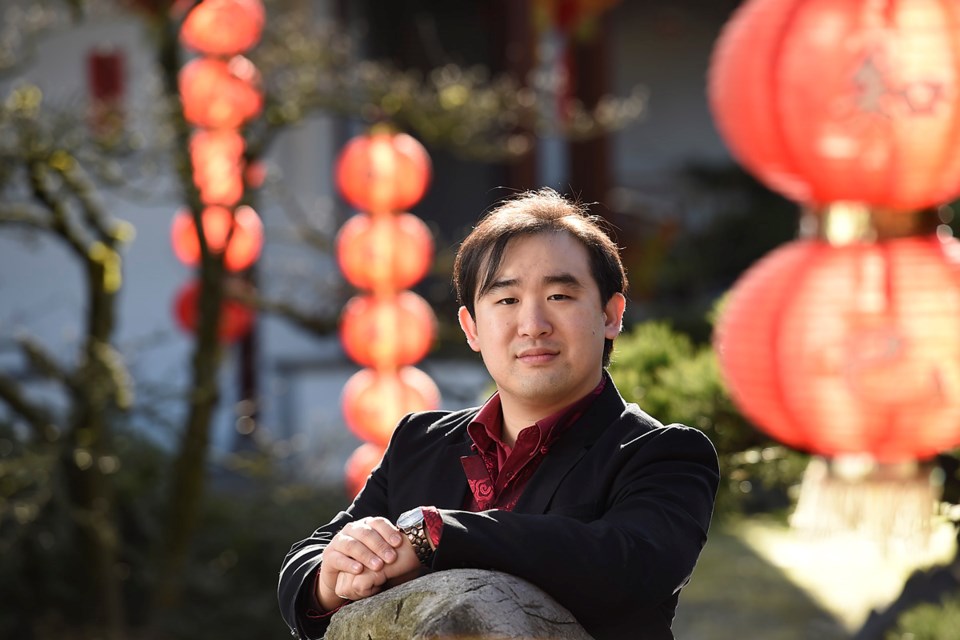The Chinese New Year begins Monday, coincidentally and conveniently falling on the Family Day statutory holiday. Chinese New Year is a huge event across East Asia and in places, like Vancouver, with large Chinese and Chinese-descended populations.
Each year in the Chinese zodiac is associated with an animal and an element. This is the Year of the Monkey, complemented with the element fire â so âfire monkeyâ â and that has feng shui and geomancy experts warning of various sorts of upheavals and commotion. Who doesnât love a monkey? But for all their eerily human characteristics, they can be unpredictable and wily. Add this element to the mix and some predict fire-related catastrophes such as volcanoes and forest fires, as well as possibly their economic and military equivalents. Still, some people will have a better year than others, based on the animal and element signs under which they were born. Putting aside those horoscopic omens, millions of Chinese and others worldwide are already celebrating the New Year.
Families will mark the occasion beginning Sunday night with family meals, temple visits and the exchange of well wishes and red envelopes, but most of Vancouverâs public festivities will take place the following weekend. Corresponding with another coincidentally auspicious date, the Chinatown parade and a major festival at Dr. Sun Yat-Sen Classical Chinese Garden will occur on Saturday, Feb. 14 â Valentineâs Day. Suffice to say, red is the motif of the day, whichever tradition one follows. The parade begins at 11 a.m., while the festival inside the Sun Yat-Sen Gardens runs from 10 a.m. to 4 p.m.
âThe motif of the event is really the Chinese concept of hot and noisy, which means boisterous and lively,â says Vincent Wong, community engagement manager for the gardens.
Red is considered one of the most auspicious and celebratory colours and is the traditional colour of Chinese celebrations, never more evident than at the New Year.
âYouâll see red all over the garden,â he says, not only the traditional lanterns, but also couplets â small banners or signs with good wishes in calligraphy.
âOur calligraphers will be demonstrating some Chinese calligraphy and people can take one home if they like.â
Chinese New Year celebrations transcend all traditions, being a secular celebration that also has roots in and contemporary connections with religious and spiritual beliefs. Â
âChinese New Year has traditions going back thousands of years and a lot of these traditions are mixed up in Buddhism, Taoism, many folk beliefs as well, going back many, many centuries,â says Wong.
In addition to being the Lunar New Year, he says, different traditions introduced aspects of ritual, many of which have become integrated across boundaries of belief and place.
âHonouring ancestors is a very big part, no matter which spiritual tradition you come from,â Wong says. Ancestors are remembered with the lighting of incense, at home or in the temple. It is also a time for renewal, for bringing the family together, for honouring elders and doling out treats (a bit of money in red envelopes, traditionally) to younger folks. Informal lessons in this tradition will be offered at the festival.
âWe will have local elders and we have volunteers that teach visitors that come in how to say some of these customary greetings, so they wish the elders good luck and then they receive a little red envelope with a chocolate coin inside,â he says.
Before decorating the home for the holiday, many people will do a major housecleaning.
âThat chases away, sweeps away, all the evil spirits and any bad energies from the previous year,â he says. âThen you make way for new energies in the coming year.â
Round fruits are popular, because they represent continuity, the cycle of time and prosperity.
Like the New Year many celebrated Jan. 1, there are also resolutions, but with a more ritualized take.
At the gardens, Wong says, guests can take a red piece of paper, write their hopes and wishes for the New Year and add it to others on a tree. After the tree is brightly festooned with red paper, they are removed and ceremonially burned, the hope being that as the smoke circles and rises the wishes ascend and will be realized.
Regardless of what astrologers say, Vancouverites will be in the streets, rain or shine, celebrating the beginning of the year 4714.
âItâs about vibrance, itâs about celebration, jubilance,â says Wong.
Gong Hei Fat Choi.
@Pat604Johnson



